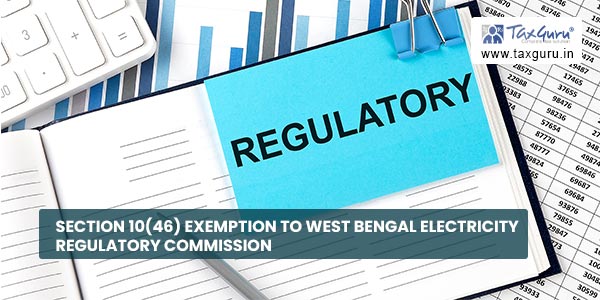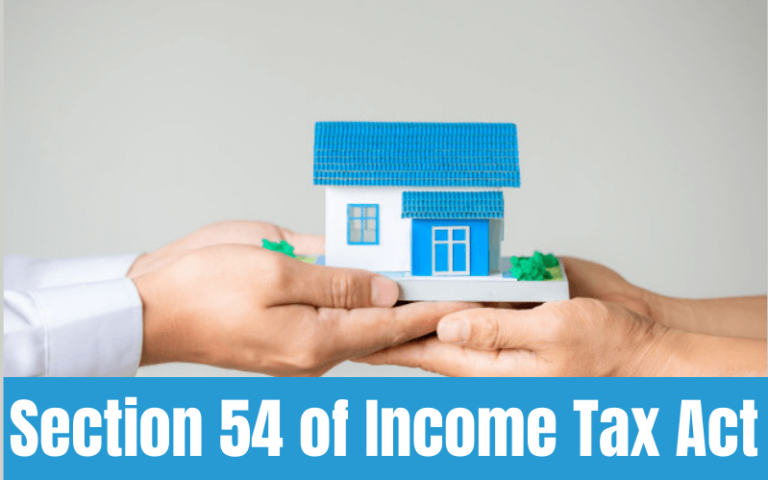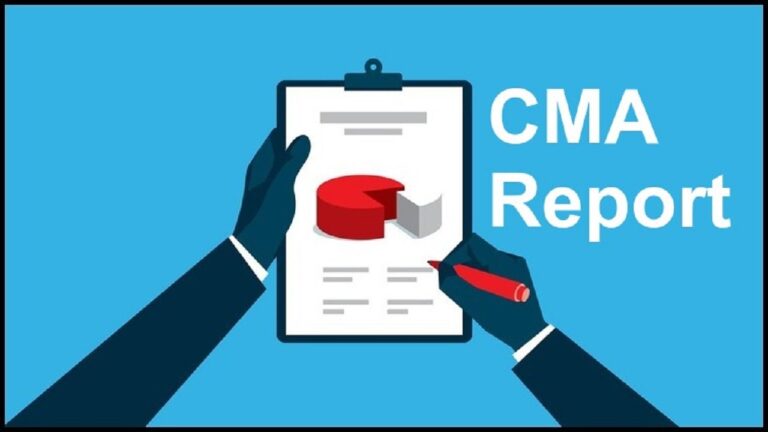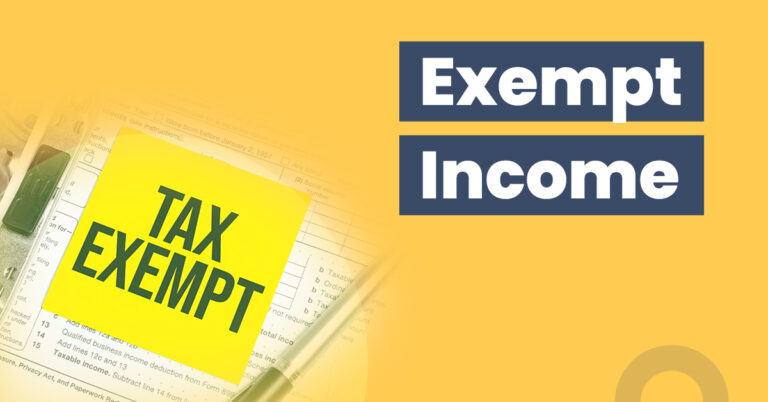Understanding Section 10(46) of the Income Tax Act: Tax Exemptions for Public Welfare Entities
The Income Tax Act of India includes several provisions to grant tax exemptions to specific entities and their incomes, provided they meet certain criteria. Among these provisions, Section 10(46) offers substantial tax relief to bodies, authorities, Boards, Trusts, or Commissions that are involved in non-commercial activities for the benefit of the general public. This article provides an in-depth look at Section 10(46), its conditions, and its implications for eligible entities.
Understanding Section 10(46) of the Income Tax Act
Section 10(46) of the Income Tax Act, 1961, exempts from tax any income arising to a body, authority, Board, Trust, or Commission, which is:
Established or Constituted:
-
- By or under a Central, State, or Provincial Act, or
-
- Constituted by the Central Government or a State Government.
Objective:
The primary objective of these entities must be to regulate or administer any activity for the benefit of the general public.
Non-Commercial Activity:
The entity should not be engaged in any commercial activity.
Notification Requirement:
The Central Government must notify the entity’s income in the Official Gazette for it to qualify for this exemption.
Key Elements of Section 10(46)
1. Establishment and Constitution:
Entities eligible for exemption under Section 10(46) must be established or constituted either by legislation (Central, State, or Provincial Acts) or by executive orders of the Central or State Government. This criterion ensures that the entity is officially recognized and serves a public purpose.
2. Objective:
The core objective of the entity must focus on regulating or administering activities that benefit the general public. Examples include authorities regulating urban development, housing, and public utilities. These entities operate with a mandate to serve public interests rather than pursuing profit.
3. Non-Commercial Activity:
To qualify for the tax exemption, the entity must not engage in commercial activities. This means their operations should not be profit-driven and should align with the public welfare objectives set out during their establishment.
4. Notification in the Official Gazette:
The exemption is granted only if the Central Government issues a notification in the Official Gazette specifying the income eligible for exemption. This step ensures transparency and official recognition of the entity’s non-commercial status.

Explanation of “Specified Income”
The term “specified income” in this context refers to the nature and extent of income arising to the eligible entities as defined and notified by the Central Government. This income must align with the public welfare objectives and adhere to the non-commercial activity clause.
Case Studies and Examples
Example 1: Urban Development Authorities
Urban Development Authorities established by State Governments to oversee the planning and development of cities are common beneficiaries under Section 10(46). These authorities regulate urban growth, ensure sustainable development, and provide public amenities without engaging in profit-driven activities.
Example 2: Housing Boards
Housing Boards created by Central or State Acts to address housing needs for the economically weaker sections and low-income groups also qualify for this exemption. Their primary role is to provide affordable housing and improve living conditions for the public.
Benefits of Section 10(46)
Financial Relief:
Eligible entities enjoy significant financial relief, allowing them to utilize their funds more effectively for public welfare activities.
Encouragement for Public Welfare Activities:
The tax exemption incentivizes the establishment and operation of entities focused on public welfare, thereby promoting social and economic development.
Transparency and Official Recognition:
The requirement for notification in the Official Gazette ensures that only genuinely non-commercial, public-serving entities benefit from the exemption.
Practical Steps to Avail Benefits under Section 10(46)
1. Identify Eligibility:
Entities must first determine whether they meet the criteria of being established or constituted by a Central, State, or Provincial Act, or by the Central or State Government.
2. Align Objectives:
Ensure that the entity’s primary objective is to regulate or administer activities for the benefit of the general public without engaging in commercial activities.
3. Apply for Notification:
Submit an application to the Central Government for the issuance of a notification in the Official Gazette. This application should detail the entity’s objectives, activities, and financial operations to demonstrate compliance with Section 10(46).
4. Maintain Compliance:
After receiving the notification, continue to operate within the guidelines set forth by the Central Government and the Income Tax Act to maintain the tax-exempt status.
Common Challenges and Solutions
1. Documentation and Proof:
Challenge:
Gathering and presenting sufficient documentation to prove eligibility can be challenging.
Solution:
Maintain detailed records of the entity’s establishment, objectives, and activities. Engage with legal and financial advisors to ensure the application is comprehensive and accurate.
2. Non-Commercial Activity:
Challenge:
Ensuring the entity does not engage in any commercial activity that could jeopardize its tax-exempt status.
Solution:
Regularly review and audit activities to ensure compliance. Develop clear policies and procedures to prevent commercial engagements.
3. Timely Notifications:
Challenge:
Delays in obtaining the required notification from the Central Government.
Solution:
Submit applications well in advance and follow up regularly. Engage with relevant government departments to expedite the process.
Frequently Asked Questions (FAQs)
1. What is Section 10(46) of the Income Tax Act?
Section 10(46) exempts income arising to specified bodies, authorities, Boards, Trusts, or Commissions that are established for public welfare and are not engaged in commercial activities.
2. Which entities qualify for the exemption under Section 10(46)?
Entities that are established or constituted by Central, State, or Provincial Acts, or by the Central or State Government, and that regulate or administer activities for the public benefit without engaging in commercial activities, qualify for this exemption.
3. What is meant by “non-commercial activity”?
Non-commercial activity refers to operations that are not profit-driven. Entities must focus on public welfare and should not engage in activities aimed at generating profits.
4. How does an entity get notified under Section 10(46)?
The Central Government must issue a notification in the Official Gazette specifying the income eligible for exemption for the entity to benefit from Section 10(46).
5. What kind of income is exempt under Section 10(46)?
The term “specified income” refers to the income that aligns with the public welfare objectives and is of the nature and extent specified by the Central Government in the notification.
6. Are there any examples of entities that benefit from Section 10(46)?
Yes, examples include Urban Development Authorities and Housing Boards that focus on city planning, development, and providing affordable housing without engaging in profit-driven activities.
7. How does Section 10(46) benefit public welfare entities?
Section 10(46) provides financial relief to eligible entities, allowing them to utilize their resources more effectively for public welfare activities. It also encourages the establishment of such entities and ensures transparency through official notifications.
Conclusion
Section 10(46) of the Income Tax Act plays a crucial role in supporting entities that contribute to public welfare without engaging in commercial activities. By providing tax exemptions, the provision ensures these entities can focus their resources on their core objectives, ultimately benefiting society. Entities established or constituted by the government with non-commercial public welfare objectives should explore this provision to understand its benefits and compliance requirements fully.
For more detailed insights into specific case laws and practical applications of Section 10(46), continue following our blog at SmartTaxSaver, where we provide comprehensive guides and updates on various sections of the Income Tax Act.




